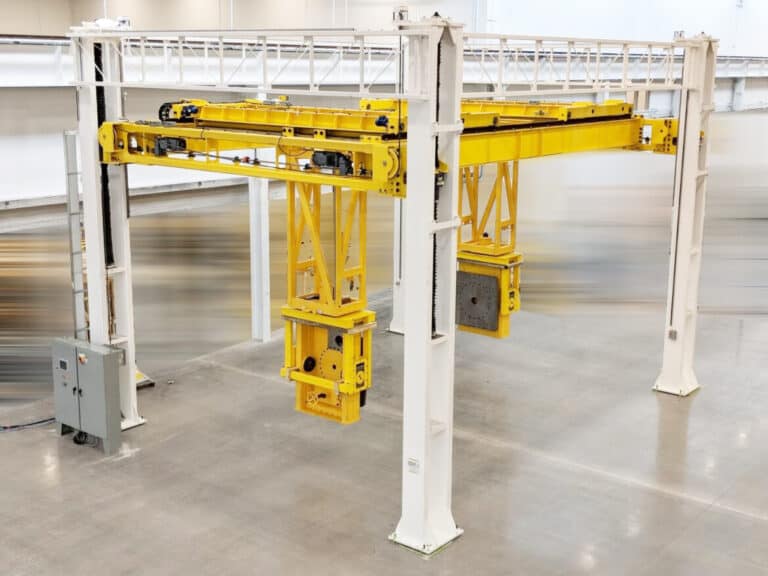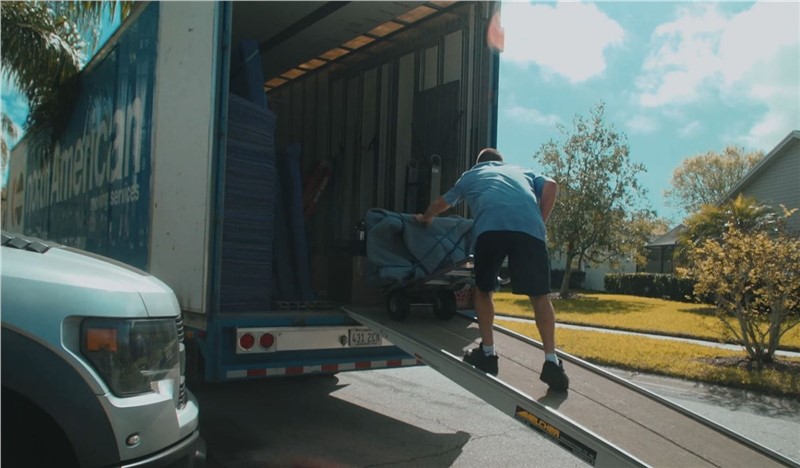When to choose LCL over FCL in lcl shipping
Wiki Article
Recognizing the Inclusions of moving and Freight Forwarding on the planet of Global and domestic Delivery
Guiding through the complexities of moving and Freight forwarding can be tough. Both processes include distinctive procedures and demands that are vital for successful transport. Comprehending the differences in logistics, documents, and risk management is necessary for people and companies alike. This knowledge can considerably impact the efficiency and safety of shipments. Nevertheless, many are unaware of the details elements that affect the general experience and outcomes. What elements should one take into consideration to ensure a smooth transition?The Fundamentals of moving and Freight Forwarding
moving and Freight forwarding are basic components of the worldwide logistics sector. They promote the transfer of items and individual items across domestic and global boundaries. moving mostly includes the moving of people or family members, including commercial and domestic demands. It usually consists of packaging, packing, delivering, and unloading items at the location. On the other hand, Freight forwarding is concentrated on the shipment of items, usually in bulk, utilizing different transport settings, such as air, land.freight, or sea forwarders function as intermediaries, working with logistics to guarantee timely shipment while steering with complex guidelines and custom-mades treatments. Both procedures need careful preparation, organization, and interaction to assure effectiveness and decrease disturbances. Comprehending these fundamentals is crucial for any person associated with logistics, as they prepared for advanced aspects of delivery and transportation management.Trick Elements of Freight Forwarding Providers
Freight forwarding solutions include a number of crucial elements that ensure smooth transport of products. Key responsibilities of Freight forwarders include managing logistics, coordinating deliveries, and taking care of customizeds clearance. In addition, understanding crucial shipping documents is crucial for compliance and efficient motion of cargo.Freight Forwarder Responsibilities
A reputable Freight forwarder plays a vital role in working with the transportation of goods, making sure that deliveries are managed efficiently and in conformity with guidelines. Their responsibilities include numerous essential tasks, consisting of choosing perfect transport routes, negotiating Freight rates, and managing logistics. They serve as middlemans in between providers and shippers, making sure that freight is properly packaged and classified for safe transit. Additionally, Freight forwarders track shipments, providing updates to clients concerning the status and expected distribution times. They also examine and take care of risks related to transportation, suggesting insurance choices as required. By facilitating communication and documentation, Freight forwarders streamline the delivery procedure, lowering possible delays and enhancing total supply chain performance.Delivering Documentation Essentials

Recognizing Custom-mades Clearance and Documentation
Accurate documents is crucial in the customizeds clearance procedure, as it ensures conformity with numerous guidelines. A review of customizeds policies highlights the complexities faced by carriers and Freight forwarders. Typical clearance challenges can considerably affect delivery timelines and costs, making understanding this aspect necessary for effective logistics.Relevance of Accurate Documentation
Guiding via the intricacies of global delivery calls for an eager understanding of customizeds clearance and the essential role of documents. Precise paperwork is necessary for making sure that shipments adhere to regulations and reach their destinations right away. Correctly prepared records, consisting of bills of lading, industrial billings, and packaging lists, promote smooth interactions with customizeds authorities. Errors can lead to shipment hold-ups, penalties, and even confiscation of goods. Furthermore, extensive paperwork help in monitoring shipments and settling conflicts. Subsequently, businesses participated in moving and Freight forwarding have to focus on thorough documents techniques to browse the detailed landscape of international delivery effectively. This persistance not only simplifies operations yet likewise boosts consumer contentment by ensuring timely shipment.Customizeds Rules Overview
Steering custom-mades regulations is a crucial aspect of global profession that directly impacts the success of moving and Freight forwarding procedures. Reliable personalizeds clearance requires an understanding of different guidelines, consisting of tolls, responsibilities, and import/export constraints. Accurate documents is necessary, as it assures compliance with legal needs and helps with the efficient activity of goods across borders. Secret papers usually consist of commercial invoices, packaging listings, and expenses of lading, which give detailed information regarding the shipment. Furthermore, custom-mades brokers play an essential duty in guiding complex guidelines, serving as middlemans between custom-mades and shippers authorities. By maintaining thorough understanding of personalizeds processes, organizations can considerably reduce hold-ups and decrease costs linked with international delivery.Typical Clearance Difficulties
Various challenges can emerge throughout the customizeds clearance process, commonly making complex the motion of goods throughout borders. One considerable concern wants paperwork, which can result in penalties and hold-ups. Exporters and importers need to assure all called for documents, such as billings, packing checklists, and certificates of beginning, is exact and full. Furthermore, discrepancies in appraisal can cause analysis from customizeds authorities, causing additional duties or inspections. Language barriers might also posture challenges, as miscommunication can cause misunderstandings concerning regulations. Additionally, changes in custom-mades guidelines can create complication, demanding constant watchfulness by carriers. Eventually, getting over these clearance tests needs thorough prep work and a clear understanding of customs demands to promote smooth worldwide purchases.Packaging and Identifying Needs
Although often ignored, packaging and labeling needs play a crucial duty in the shipping procedure, ensuring that products are protected and conveniently recognizable throughout their journey. Appropriate packaging safeguards items from damage throughout transportation, while additionally assisting in efficient handling and storage space. my sources Making use of suitable products, such as bubble cover, foam, or strong boxes, can prevent damage and loss.Labeling is similarly essential. Clear and accurate labels convey crucial information, consisting of the location, managing directions, and contents. Tags need to follow regulations particular to residential and worldwide shipping, which may consist of harmful products identification or custom-mades declarations.Moreover, standard labeling methods streamline the monitoring procedure and boost general logistics efficiency. By adhering to packaging and labeling requirements, businesses decrease the risk of hold-ups, damages, or misdelivery. Inevitably, these practices add greatly to the success of moving and Freight forwarding procedures, making sure a seamless delivery experience for all events involvedTracking Deliveries: Importance and Approaches
Reliable packaging and labeling set the foundation for effective delivery monitoring, but tracking shipments is equally important in the delivery process. Delivery tracking supplies real-time presence, which aids organizations and customers check the development of their items. This transparency enhances consumer complete satisfaction, given that clients can remain notified regarding shipment timelines and any kind of prospective delays.Several approaches assist in reliable tracking. Barcode scanning is a common strategy, making use of special identifiers to keep track of bundles throughout their journey. Furthermore, GPS technology allows accurate area tracking, permitting timely updates and improved logistics administration. Several shipping firms now offer electronic systems and mobile applications that give individuals with very easy access to tracking information.The relevance of delivery tracking can not be overemphasized; it lessens the risk of lost or harmed goods, boosts functional effectiveness, and fosters count on between receivers and shippers. Integrating reliable tracking approaches is essential for successful domestic and international shipping operations.Insurance Options for Your Product

Securing insurance policy for items en route is an essential consideration for people and organizations alike. Insurance options differ based upon the kind of shipment, worth of products, and certain dangers included. Usual types consist of provider responsibility, which covers loss or damage while en route, and full-value insurance coverage, providing considerable coverage for the complete value of the goods.Shippers might likewise take into consideration aquatic insurance policy for global shipments, safeguarding versus dangers connected with sea transport. It is necessary to evaluate the details requirements of the delivery and examine the terms and problems of any policy.Furthermore, comprehending exemptions and restrictions is crucial to avoid possible voids in insurance coverage. Shippers need to involve with insurance policy specialists to explore tailored services that fit their unique circumstances. Ultimately, purchasing the best insurance coverage can mitigate monetary risks and provide tranquility of mind throughout the delivery process.
Selecting the Right moving and Freight Forwarding Solution
When picking a relocating and Freight forwarding solution, it is vital for individuals and businesses to very carefully examine their details needs and top priorities. Variables such as the volume of goods, destination, and timeline play a substantial role in this decision-making procedure. Investigating numerous providers is recommended; comparing their services, pricing, and customer reviews can disclose useful insights.Additionally, it is essential to take into consideration the experience and experience of the solution supplier in managing certain kinds of cargo, especially for international deliveries that may include custom-mades clearance. Transparency in prices, consisting of any kind of hidden charges, must likewise be scrutinized.Furthermore, evaluating the degree of customer assistance used is vital, as prompt interaction can mitigate issues throughout transit (shipping companies). Lastly, verifying the schedule of insurance policy options guarantees that products are secured throughout the delivery procedure. By taking these people, businesses and actions can make informed options that align with their logistics needsOften Asked Concerns
What Sorts Of Goods Can Be Shipped Globally?

How Do Shipping Costs Vary Between Various Providers?
Delivering prices differ significantly between carriers as a result of variables such as service speed, cargo type, distance, and extra solutions offered. Each service provider's rates model reflects these variables, influencing general shipping expenses for customers.
Can I Ship Hazardous Materials or Perishables?
Delivering dangerous products and perishables undergoes stringent guidelines. Providers frequently call for specific packaging, labeling, and documentation. Shippers need to assure compliance with international and neighborhood regulations to avoid fines and ensure risk-free transport.What Should I Do if My Shipment Is Postponed?
When faced with a delivery delay, one should first call the service provider for updates. Then, review any type of alerts got, assess different remedies, and maintain all events notified about the circumstance to lessen disturbances.Exist Weight Purview for Delivery Containers?
Weight limitations for delivery containers differ relying on factors like container dimension and shipping policies. Normally, common containers have an optimum gross weight of around 30,000 to 32,000 kgs to ensure safe transport and handling. In try this web-site comparison, Freight forwarding is focused on the delivery of goods, often in mass, using various transportation settings, such as air, land.freight, or sea forwarders act as intermediaries, collaborating logistics to assure timely delivery while steering via long distance moving rates complicated regulations and customs procedures. Key obligations of Freight forwarders include handling logistics, collaborating shipments, and dealing with customizeds clearance. A trusted Freight forwarder plays a vital role in coordinating the transport of goods, ensuring that shipments are managed effectively and in compliance with regulations. Effective product packaging and labeling set the foundation for effective delivery management, but tracking deliveries is similarly crucial in the delivery process. Lots of shipping companies currently supply digital systems and mobile applications that offer individuals with easy accessibility to tracking information.The relevance of delivery monitoring can not be overemphasized; it minimizes the risk of shed or harmed items, enhances operational performance, and fosters count on between carriers and recipients.Report this wiki page